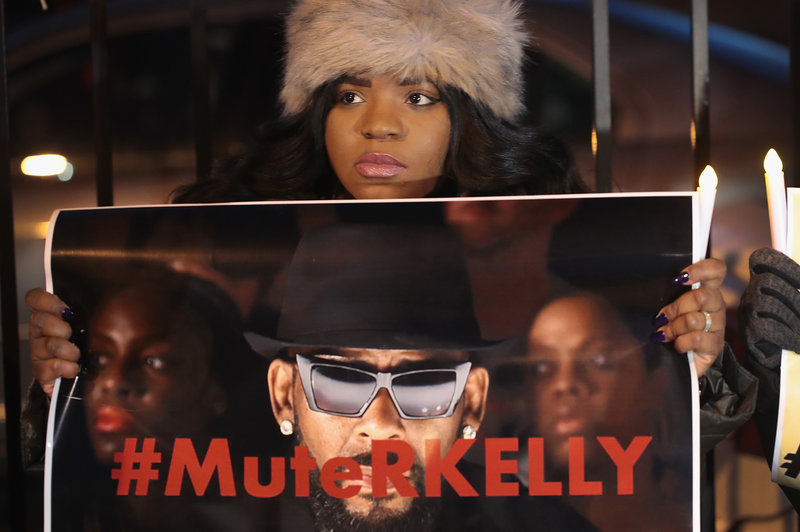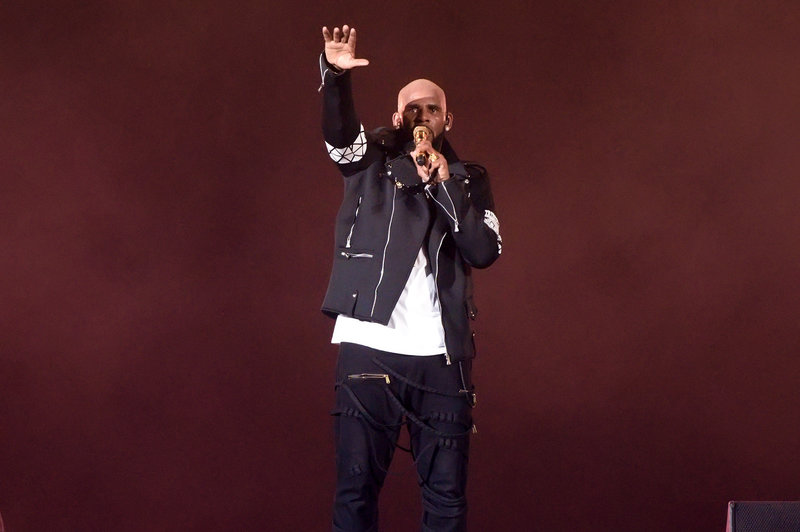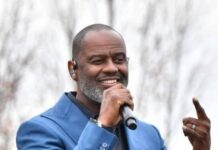*Despite decades of sexual abuse allegations against him, R. Kelly’s career hasn’t suffered while he has maintained his powerful position in the industry. Though many will argue that this appears to be changing, thanks in part to the release of Lifetime network’s docuseries “Surviving R. Kelly.”
The doc explores the allegations against the singer, and as previously reported, Prosecutors in Chicago and Atlanta are now seeking information from any potential victims or witnesses of the alleged sexual and physical abuse by the hitmaker.
But a criminal defense attorney representing R. Kelly says there are “no facts” to back up these allegations.
OTHER NEWS YOU MIGHT HAVE MISSED: Serena Williams ‘Loves Bath Time’ with Daughter Alexis Olympia
The doc has reignited #MuteRKelly protests, and stars such as Lady Gaga, John Legend, Chance The Rapper, Meek Mill and Omarion have criticized Kelly and apologized for working with him.
Meanwhile, NPR reports “in the gospel music and church communities that have long supported him, Kelly still has defenders and fans. Now, these communities are facing a moment of reckoning.”
According to theologian and essayist Candice Benbow, some of Kelly’s more inspiration songs, such as “I Believe I Can Fly” have long been popular in Black congregations — so many have preferred to turn a blind eye to his alleged transgressions.
“Even when before we saw Surviving R. Kelly, there were a number of allegations that … nobody touched in this particular community,” she told NPR’s Scott Simon. “Because it was easier for us to say ‘I’m gonna pray for him’ rather than say ‘I’m going to attack this head on.'”
Benbow wrote about the Black church’s refusal to condemn Kelly in a piece on her website called “Supporting R Kelly: When Gospel and Black Church Get It Wrong.”
In the wake of #SurvivingRKelly, there’s been a deafening collective silence among gospel artists and leaders within the Black Christian community. And that silence is complicit. I wrote about it. https://t.co/NpSwpCQ4xx
— Candice Marie Benbow (@CandiceBenbow) January 9, 2019
In her piece, she says pastors have used their faith to explain why they refuse to condemn one of their own.
“They told us to pray for Robert, to understand that no sin is greater than the other and that all of us have fallen short of the glory of God,” she wrote. “Instead of teaching personal responsibility, we tell people that their proclivity to ‘mistakes’ is proof of their anointing.”
Benbow says this predatory mentality has roots in “the structure of our churches and the structure of our theologies.”
“There was a point when the only place that black man could find power and respect and refuge was in our black churches,” Benbow told NPR. “So during the height of the civil rights movement, during times of rampant anti-blackness during reconstruction, if you could not be in a space in larger society where you were respected, you definitely could come to the church and be … a leader in our communities and our congregations, and so that leadership became … protected over and above caring for and protecting black women and girls.”
Benbow believes “We are in a moment where we have to draw the line in the sand and say that we cannot continue to support someone who has done these unconscionable things,” she said.
In her piece, she notes how the church organized “Hoodie Sunday” in response to Trayvon Martin’s death. She would like to see the same action taken in response to Kelly’s controversy.
“There are so many black girls and black women who have experienced violation, who look to gospel music and who look to pastors,” she said. “If they can’t hear their favorite gospel artists or their pastors say ‘this is wrong and we have to address it,’ then we really have to think about what is the true message of the church and … of gospel music.”
We Publish News 24/7. Don’t Miss A Story. Click HERE to SUBSCRIBE to Our Newsletter Now!







